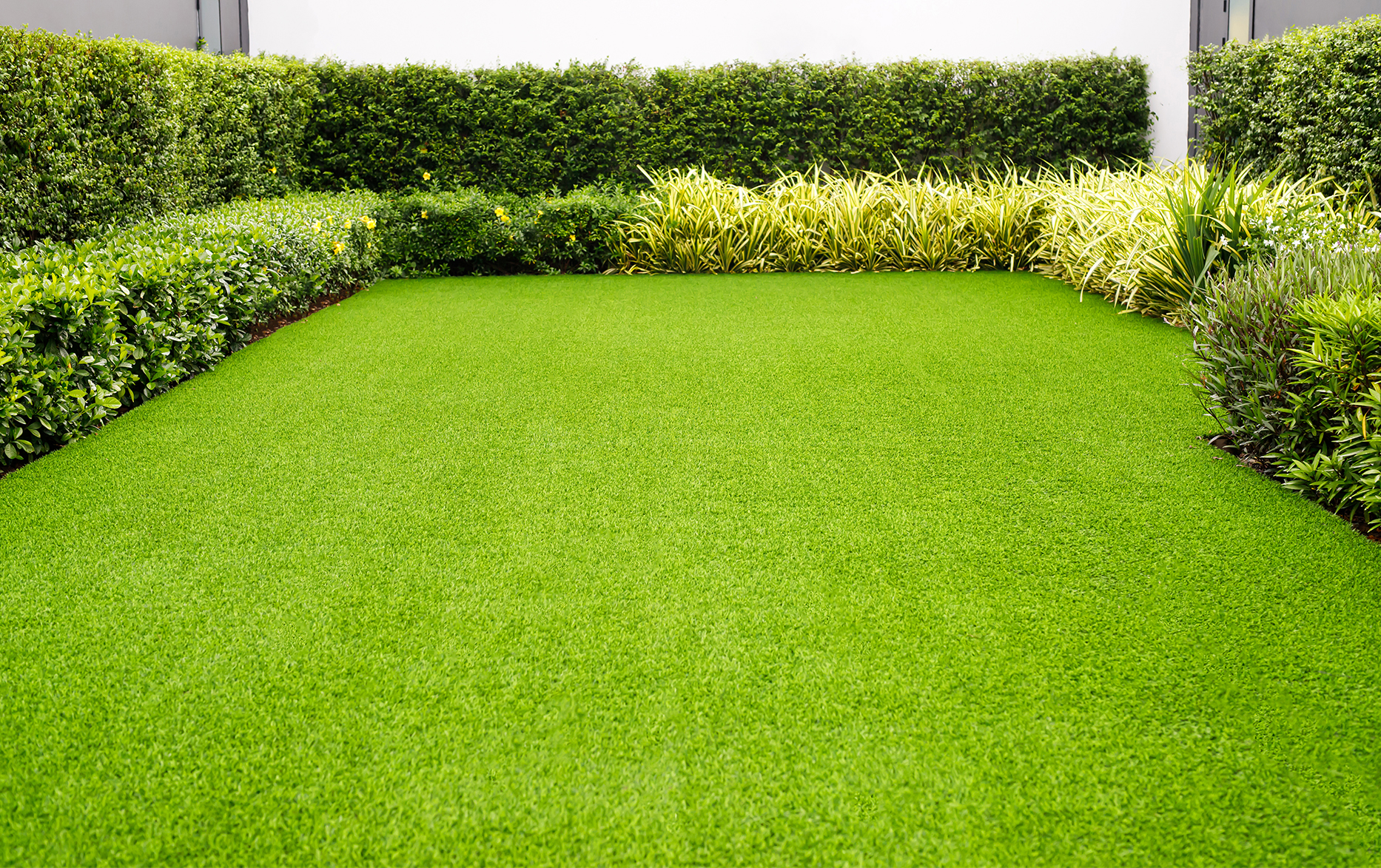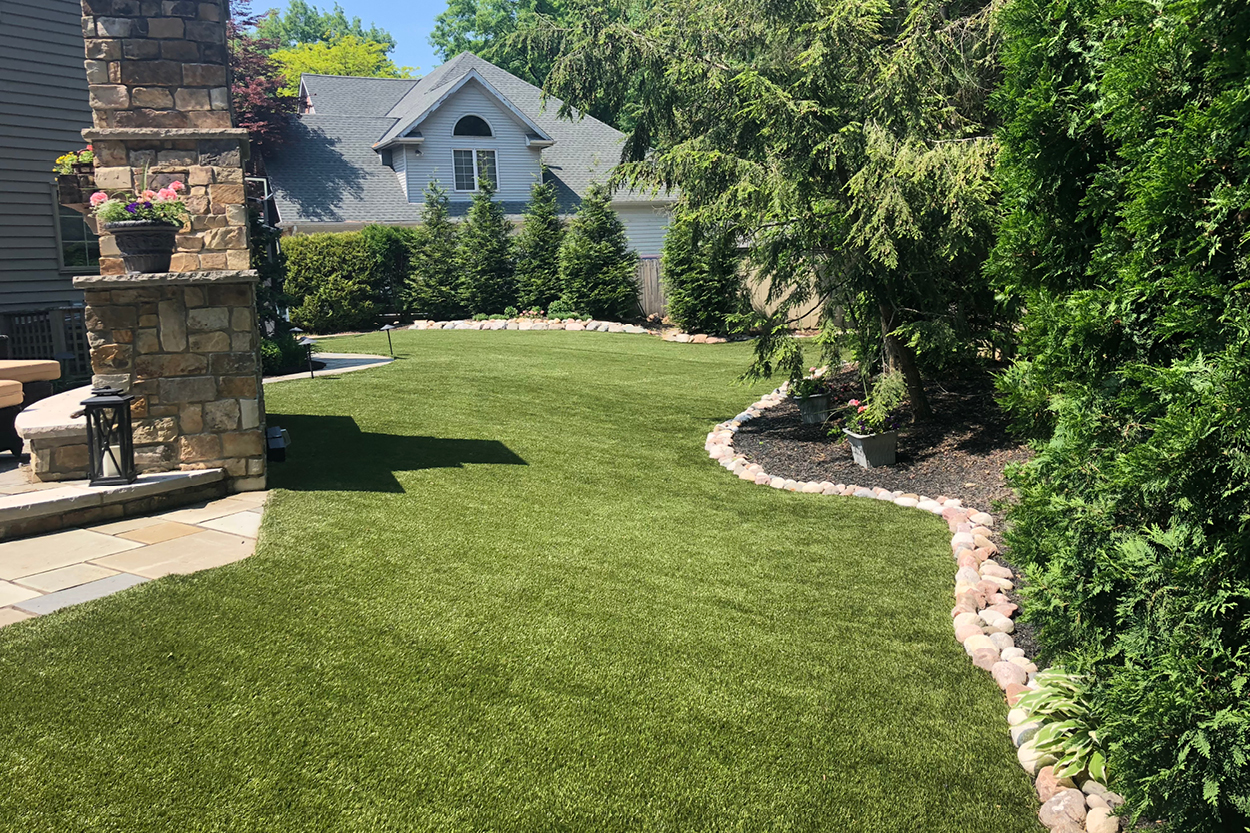Top Phoenix Turf Companies Offering Superior Synthetic Grass Options
Top Phoenix Turf Companies Offering Superior Synthetic Grass Options
Blog Article
Explore the Environmental Conveniences of Opting for Artificial Grass Solutions
The adoption of synthetic turf services provides an engaging opportunity to address pushing ecological challenges. By significantly minimizing water usage and decreasing the application of damaging chemicals, these options not only promote lasting landscaping however also protect neighborhood environments.
Water Conservation Perks
One of the most significant benefits of man-made grass is its ability to conserve water. In comparison, man-made lawn does not need watering, dramatically decreasing the general need for water sources.
By getting rid of the demand for regular watering, synthetic turf contributes to lasting landscape techniques and helps alleviate the environmental impact of excessive water intake. In addition, the conservation of water extends to the decrease of runoff, which can bring about dirt erosion and river air pollution.
In addition, the installation of synthetic grass permits home owners and districts to allot water sources extra efficiently, concentrating on essential uses such as drinking water and farming. The shift towards fabricated grass not just promotes responsible water use but likewise straightens with wider ecological objectives aimed at preserving natural sources.
As areas progressively prioritize sustainability, the water preservation advantages of synthetic lawn offer an engaging case for its adoption in industrial and household landscaping tasks.
Reduced Chemical Use
The change to man-made turf considerably lowers the dependence on chemical therapies typically used in natural turf maintenance. Traditional lawn administration commonly involves the application of herbicides, fertilizers, and pesticides to promote growth and control parasites. These chemicals can pose threats to human wellness, neighborhood wild animals, and the setting, contributing to dirt and water contamination.
In comparison, synthetic grass removes the demand for these harmful materials. When installed, it needs marginal maintenance, mainly being composed of routine cleaning and occasional infill replenishment. This reduction in chemical use not only benefits the instant environment yet additionally adds to more comprehensive environmental security. By minimizing the release of artificial substances right into the ecological community, artificial lawn promotes much healthier dirt and water supply.
Furthermore, the lack of chemical overflow related to synthetic grass setups assists protect local rivers from air pollution, supporting water life and preserving biodiversity. Phoenix turf companies. As areas increasingly prioritize sustainable practices, going with fabricated grass provides a viable solution that aligns with ecological conservation objectives. Via this change, residential or commercial property proprietors can enjoy rich eco-friendly rooms without compromising environmental health, paving the way for a much more sustainable future
Reduced Carbon Footprint

Moreover, the installation of man-made turf can result in substantial water preservation. All-natural lawns need substantial amounts of water for irrigation, which not just includes to the carbon impact associated with water removal and treatment but likewise strains regional water sources. On the other hand, synthetic grass needs minimal upkeep, needing no watering, consequently considerably minimizing water usage and its connected energy costs.
In addition, the durability of synthetic grass adds to its reduced carbon effect. With a life-span of up to 15 years or even more, the need for regular replacements is lessened, leading to less waste and lower energy usage in production and disposing of standard lawn options. Generally, synthetic grass presents a lasting choice for eco mindful landscape design.
Habitat Conservation
Environment conservation is a critical factor to consider in the discussion over landscape design selections, especially when comparing synthetic grass to all-natural turf. All-natural lawn yards frequently call for substantial upkeep, consisting of making use of fertilizers, herbicides, and chemicals, which can negatively impact check out here local ecosystems. These chemicals can seep into the soil and waterways, hurting indigenous flora and fauna and disrupting neighborhood habitats.
On the other hand, synthetic grass provides an opportunity to reduce the ecological impact of landscape design. By selecting artificial turf, property owners can reduce the disturbance of natural habitats related to traditional grass treatment practices. Synthetic grass eliminates the need for hazardous chemicals, consequently safeguarding neighboring wild animals and keeping the honesty of surrounding communities. In addition, the setup of synthetic grass can cause the conversion of former turf areas into more biodiverse landscapes, such as pollinator yards or indigenous plant locations, which can support regional wild animals.
Eventually, the transition to synthetic grass not just conserves water and reduces upkeep initiatives but also fosters a more unified relationship in between human tasks and the all-natural atmosphere, advertising environment preservation in the process.
Long-Term Sustainability
Long-term sustainability is a vital consider assessing the benefits of synthetic grass over typical yard yards. One of the most substantial benefits of synthetic grass is its durability; it can last approximately 15-20 years with very little maintenance, whereas natural lawn requires constant reseeding and substitute. This durability lowers the requirement for constant resources, such as water, fertilizers, and chemicals, which are necessary for keeping a healthy and balanced turf yard.
Furthermore, synthetic turf contributes to a reduction in carbon exhausts associated with yard treatment tools. Traditional grass typically need gas-powered lawn mowers, trimmers, and blowers, every one of which add to air contamination. Artificial turf companies phoenix. On the other hand, synthetic grass removes the need for such devices, promoting a cleaner atmosphere
Furthermore, the production of man-made lawn progressively uses recycled products, boosting its sustainability profile. As producers embrace green techniques, the ecological footprint of synthetic grass continues to lessen.

Final Thought
The adoption of synthetic grass solutions offers significant environmental advantages, consisting of discover this info here considerable water preservation, reduced dependence on hazardous chemicals, and a reduced carbon footprint. Additionally, synthetic grass aids in protecting natural environments by lessening land disruption and advertising lasting sustainability through using durable materials. Collectively, these factors highlight the possibility of man-made turf to contribute favorably to ecological health and provide a viable alternative to standard landscaping methods in a significantly resource-conscious globe.
In contrast, artificial lawn does not require watering, considerably lowering the general demand for water resources. By minimizing web link the release of artificial compounds right into the community, artificial grass promotes much healthier dirt and water systems.
Additionally, the installation of artificial lawn can result in significant water conservation. In contrast, synthetic turf requires very little upkeep, needing no watering, therefore significantly minimizing water use and its linked energy expenses.

Report this page